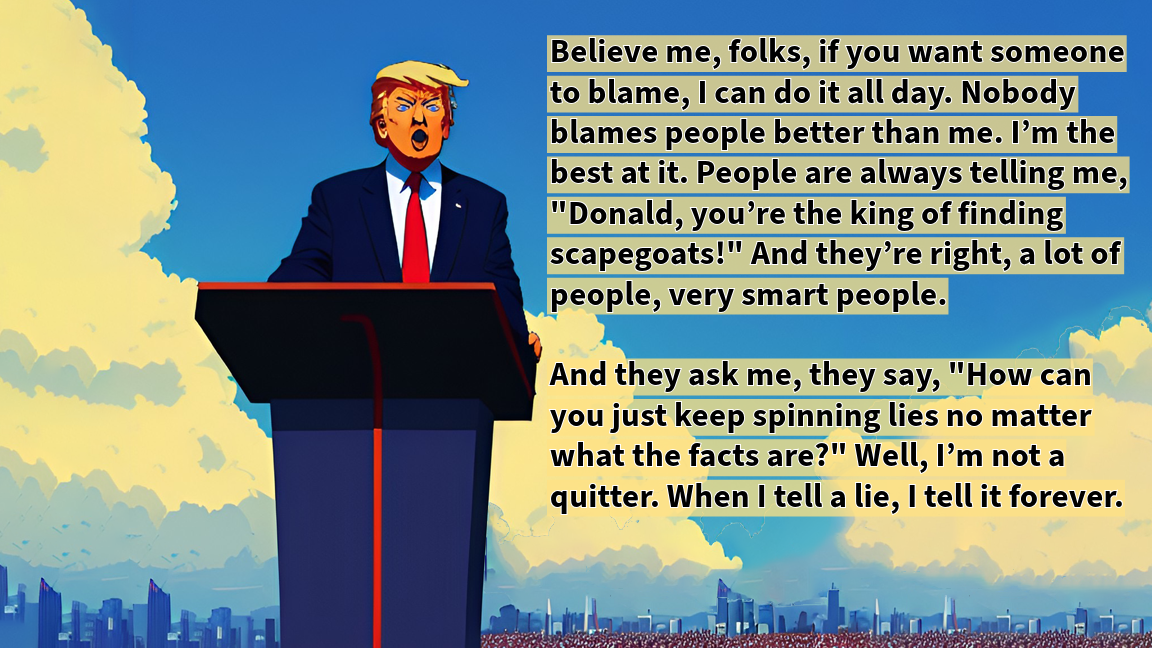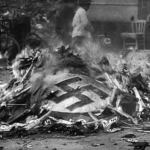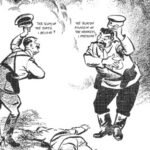When Donald Trump launched his presidential campaign in 2016, one of his frequent targets was the North American Free Trade Agreement (NAFTA). He repeatedly called it “the worst trade deal ever” and placed the blame squarely on Bill Clinton, who signed the agreement into law in 1993. But was NAFTA really Clinton’s doing? Let’s break down the history and see who actually brought NAFTA into existence.
Who Passed NAFTA in the Congress?
Before NAFTA could be signed into law it needed to be passed by Congress, which did it with significant bipartisan support. But it was the Republican members who gave it the most support. The House of Representatives approved NAFTA with a vote of 234 to 200, and the Senate passed it with a vote of 61 to 38. Republicans took the lead in both chambers and clearly supported the agreement as a party, while Democrats were more divided, with a majority voting, “Nay,” despite the Democrat in the White House supporting it.
The vote in the House of Representatives was:
Republicans: 132 in favor, 43 against
Democrats: 102 in favor, 156 against
The vote in the Senate was:
Republicans: 34 in favor, 10 against
Democrats: 27 in favor, 28 against
Who Negotiated NAFTA?
Before NAFTA could go through the process of being considered by Congress and votes taken, the structure of the agreement had to be negotiated. These negotiations took years and were primarily conducted by the George H.W. Bush Administration. The agreement was actually signed by Bush in December 1992, a month before Clinton took office. Bush was a strong advocate for the agreement, viewing it as a way to strengthen economic ties with Canada and Mexico and promote free trade across North America. This thinking was very much in line with the general consensus among Republicans that more trade and less barriers to businesses is beneficial for everyone in the long run.
Who First Proposed NAFTA and Pushed for It?
Before NAFTA could be negotiated, someone had to propose it, get the American people comfortable with it, and get the three North American countries to the table to begin talking about it. The concept of NAFTA dates back to Ronald Reagan’s 1980 presidential campaign, where he envisioned a “North American accord” that would promote free trade between the U.S., Canada, and Mexico. In Reagan’s broadcast announcement of his candidacy, on November 13, 1979, he went so far as to say, “It’s time we stopped thinking of our nearest neighbors as foreigners.” The Reagan Administration later laid the groundwork to make his vision a reality.
Clinton’s Role in NAFTA
Bill Clinton did indeed sign NAFTA into law, but the agreement was in its final stage when he took office. His role was one of carrying forward an initiative that had been created, developed, and nearly completed by Republicans. Clinton, attempting to appeal to a broader section of the electorate, including “Reagan Democrats,” supported NAFTA despite significant opposition from traditional Democrat voting blocks, like labor unions. Clinton’s endorsement was part of his strategy to position himself as a centrist, new kind of Democrat, finding a middle way between extremes. Putting the full blame or credit for NAFTA on Clinton makes about as much sense as blaming your local mail carrier for bringing you the Jelly of the Month Club subscription that your boss got you for Christmas.
Trump’s Narrative vs. Trump’s Past
Donald Trump’s narrative that “NAFTA is Clinton’s fault” became an important talking point during the 2016 election when he was running against Hillary Clinton. Trump, who had been a supporter of free trade in the 1980s and 1990s, also expressed support for Reagan and Bush, despite being a registered Democrat at the time. There is even evidence that Trump put himself forward to be Bush’s running mate in 1988, although Trump now claims the Bush campaign approached him. More importantly, Trump never once publicly criticized NAFTA or warn against it during its long inception or implementation. In addition to his many media appearances, Trump even testified to a Congressional Committee in 1993, where he spoke about the benefits of free trade. Had he seen a problem with NAFTA and thought it was not what he meant by free trade, this would have be the perfect opportunity to warn us all. Even in 1999, when Trump flirted with a presidential run under the Reform Party banner, he only mentioned a vague need for “fair trade” without specifically citing what this means or condemning NAFTA. Clearly, even if you accept that this was, “the worst treaty ever,” as Trump has maintained since 2016, he didn’t reach this conclusion until it was in operation for decades. This self-professed, “stable genius,” had no genius insights on the subject and there is no reason to believe that he would have done anything differently had he held any office decades ago and good reason to believe that he would have gone along with passing NAFTA, at the time.
Impervious to Facts
The debate over NAFTA’s impact is ongoing and complex, with some still touting its benefits and others measuring it only in terms of its drawbacks. But the important point that Trump’s MAGA crowd and other supporters refuse to see is not really about NAFTA; it’s about Trump. The claim that President Clinton was solely responsible, mostly responsible, or significantly responsible for NAFTA is a serious distortion of the historical record and one of many examples of Trump’s pathological need to rewrite history to his benefit. Fortunately for him, unfortunately for the future of the republic, millions upon millions refuse to look beyond Trump’s political rhetoric and uncover any facts that would call him and his candidacy into question.













Leave a Reply